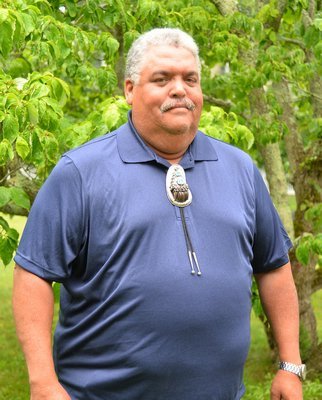
Governor Andrew Cuomo again has derailed efforts by state legislators to officially recognize the Montaukett tribe, which was stripped of its official status by an early 20th century lawsuit that also deeded the bulk of its former land in Montauk to a real estate developer.
Gov. Cuomo on Wednesday, November 29, vetoed a bill passed last summer by both the Assembly and Senate that would have granted the now-scattered tribe legal recognition as an autonomous Native American tribe in the state’s eyes.
“Providing state recognition to an Indian tribe warrants thorough and careful consideration of all parties,” the governor wrote in his veto message. “However, this bill would require the state to bypass such analysis and recognize the Montaukett Indian tribe as a nation, without any process.”
But Montaukett leader Robert Pharaoh said he has seen no evidence of any review being done and is skeptical that the governor’s office has any intention of giving the tribe a path to recognition.
“Nobody has ever called me, and they haven’t gotten any other information from anywhere,” said Mr. Pharaoh, who lives in Sag Harbor. “They don’t have any review process and they want to keep it that way.”
State Assemblyman Fred W. Thiele Jr., who co-sponsored the legislation with State Senator Kenneth P. LaValle, said that he was disappointed in the governor’s decision and called on the executive and the Department of State to produce their long-talked-about evaluation of the Montauketts’ official status.
It is the second time that Gov. Cuomo has vetoed a bill passed by the legislature that sought to find a way for the state to recognize the Montauketts.
In 2013, the legislature passed a bill setting up a process by which the Department of State could review the tribe’s status and issue a recognition, modeled on the laborious process by which the federal Bureau of Indian Affairs conducts its analysis of tribal lineage and historical records to determine whether the tribe is still an intact community to be recognized.
The governor vetoed that bill also, saying that the process created was too onerous for the state to take on, and that the Department of State would devise its own guidelines and conduct a review of the Montauketts’ status.
But in the four years since, Mr. Thiele said on Thursday, November 30, there has been zero evidence of such a review being conducted.
“Four years ago, we put through a bill to create a procedure for the Montauketts to be evaluated for recognition, and the governor said, ‘I don’t like your procedure—I’m going to make my own,’” said Mr. Thiele, who is from Sag Harbor. “But there’s no evidence that they’ve done anything. So we put up a bill to recognize the Montauketts, and they veto us, saying we’re interrupting their process. If they’ve undertaken any kind of process, it doesn’t appear evident to anybody involved with the Montauketts.”
In his explanation of the veto, however, the governor claimed that the state “only recently” received pertinent information on the Montauketts as part of its analysis. He also said that he would renew his instruction to the department to “pro-actively communicate with the Montaukett Indian tribe” in order to complete the review of its status “in a timely manner.”
Bestowing state recognition on a Native American tribe by simple act of the legislature is not new. The Montaukett bill was modeled after the legislation that officially recognized the Unkechaug tribe in 1971, and the legislature also recognized the Shinnecock Indian Nation via legislative act in the early 20th century, though the Shinnecocks had effectively been recognized by the state for centuries already.
State recognition would make tribe members eligible for a modicum of aid benefits, mostly focused on health care and education subsidies. But representatives of the tribe’s people have always said that the undoing of a century-old injustice is their primary concern.
“The fact that we would finally be vindicated, that we would have a gross injustice rectified and our wholeness as a tribe back, our status back, to know it would make my ancestors very happy,” Mr. Pharaoh said back in June when the legislature approved the recognition bills.
Gov. Cuomo has had a rocky history with Native American tribes throughout the state during his tenure in Albany. He has butted legal heads with several tribes over cigarette taxes and gaming development. During the Shinnecock Indian Nation’s push to partner in a variety of casino development deals, the governor—who would have had to sign off on any tribal gaming enterprise—refused to meet with the tribe or its representatives.
There are about 1,500 descendants of the historic Montaukett families, the bulk of whom now live in central Long Island. The tribe has had some internecine disputes over who the official leadership and spokesperson for the tribe is, but has been united in its desire to see the tribe recognized.
Mr. Pharaoh said that he thinks the state will seek to keep the Montauketts from being officially recognized for fear it would mean a land-claim lawsuit, seeking to take back lands taken from them unlawfully.
The tribe’s recognition by the state was erased in 1912, when a state judge, Justice Able Blackmar, ruled the tribe “extinct” because, he found, its Native American lineage had been diluted through intermarriage with non-Indians.
Mr. Thiele said that he and Sen. LaValle will reintroduce their bills again after the start of the new year.
“We will attempt to the best of our ability to hold the governor’s and Department of State’s feet to the fire to complete this evaluation that they say they’ve undertaken,” he said. “If they say they want to complete the process, then complete it.”